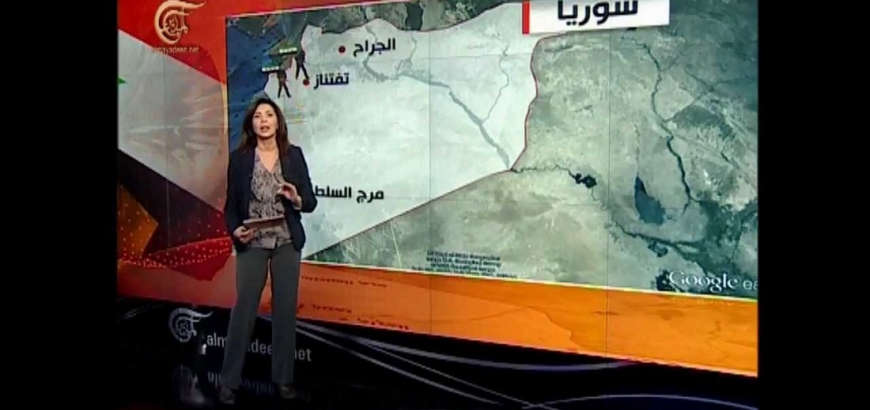The Assad regime's government has prohibited the Al-Mayadeen channel, which is close to the Lebanese Hezbollah militia and Iran, from covering events in south Damascus.
The news of the channel being blocked sparked an uproar on social media and and mixed reactions. The reasons reported by pro-regime pages on Facebook for why the channel was blocked varied.
Al-Mayadeen adopts the same political rhetoric and stances as the Assad regime, and has participated through its news and the figures it has hosted in denying the chemical massacres which occurred in the Eastern Ghouta, the first in August 2013 and the second in April 2018.
As of Tuesday, May 1, 2018, there has not been any clarification from the Assad regime about prohibiting the channel from working, while Al-Mayadeen's administration has also not commented.
It has only published a statement through Dima Nassif, who expressed her wonder at the decision, pointing to the fact that there were non-Syrian media covering the developments in southern Damascus and were not prohibited from working.
Nassif spoke in detail about her and the channel being exposed to what she described as a “campaign of intimidation and incitement” which she said was “organized”. She pointed to questioning about “political loyalty and political affiliation and patriotism for Syria”, saying that was “very serious.”
Assad regime loyalists on social media launched a major attack on Al-Mayadeen and the head of its bureau, Nassif, saying that what the channel did was “spectacle news” and “theatrical exhibitions” and published an image of Nassif carrying a regime flag while previously covering events at the Al-Wafideen crossing.
Among the reasons which loyalists pointed to for Nassif being forbidden from coverage were that she had lied in news about the release of 3,500 prisoners in Douma, saying that this news had been published before the issue of prisoners had even been discussed and that she had implicated with her pro-regime Facebook pages and analysts and created confusion.
They also accused the channel and Nassif of publishing news they described as “false” quoting Assad, and said that they had also lied in a news item about the Chinese “Tiger” forces arriving and had not corrected the news after it was denied.
Loyalists also expressed their annoyance that the channel had hosted analysts and figures who were said to be pro-regime, some of whom had then denigrated it.
This article was translated and edited by The Syrian Observer. Responsibility for the information and views set out in this article lies entirely with the author.


